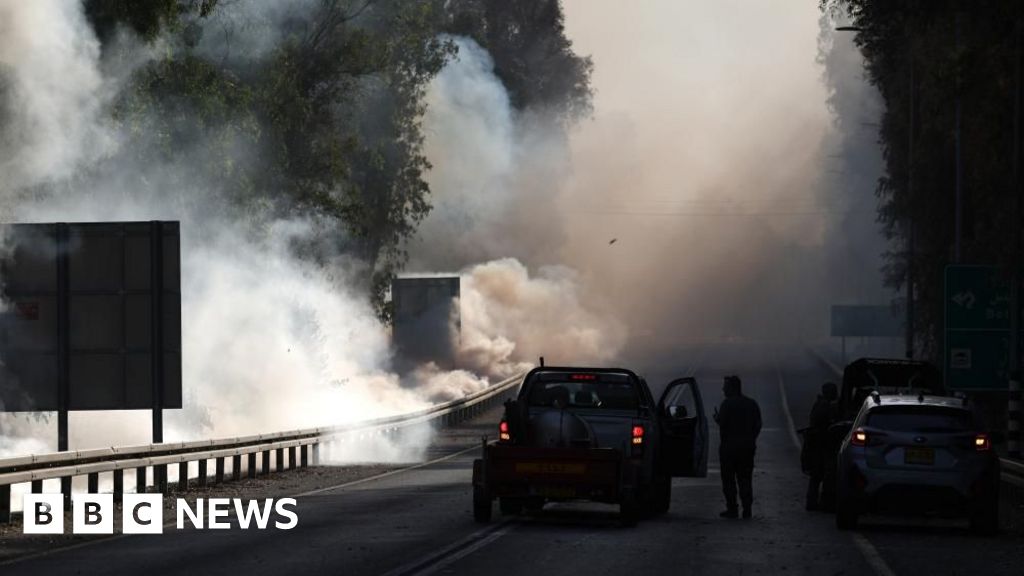Hezbollah rockets sparked days of bushfires in northern Israel, destroying large swathes of forest reserves and hospitalizing 11 people with smoke inhalation.
Half an hour from the Lebanese border, large areas of scorched earth began to appear, and wisps of gray smoke outlined the routes on both sides of the mountains.
The northern Israeli community is largely deserted, with residents battling scattered fires for weeks. A member of the civil defense team said that 15 to 16 fires have broken out in the area since then. However, the high temperatures in recent days have caused the temperature to rise sharply.
Firefighters battled for 20 hours on Monday to put out blazes around the town of Kiryat Shmona.
Forest rangers say the fires have burned 3,500 acres so far, sparking new demands for the Israeli government to take steps to end the escalating conflict with Hezbollah on its northern front.
Israel’s war cabinet is scheduled to meet on Tuesday evening to discuss the deteriorating security situation on its northern border. Israel and Hezbollah have been engaged in almost daily cross-border fighting since October, with attacks escalating in intensity in recent weeks.
A kibbutz resident said Hezbollah’s rocket attacks are “definitely” related to Israeli operations in Gaza, with three or four rockets flying over them every day since Israeli forces began ground operations in the southern Gaza city of Rafah. of houses.
Tens of thousands of residents evacuated from the area after Hamas attacked Israel are still waiting to return home. But the government’s deadline to secure these areas keeps getting pushed back.
Many displaced residents see a ceasefire in Gaza as key to stabilizing the north.
But Israel’s far-right Security Minister Itamar Ben-Gver said today during a visit to firefighters in the nearby town of Kiryat Shmona that the government’s response to Hezbollah rockets should be war.
“There is no peace in Lebanon when our land is targeted,” he said.
Israeli Army Chief of Staff Herzl Halevi, who also visited the region, said the country was “approaching the moment when a decision must be made”.
He said the Israel Defense Forces “are ready to attack.”
Hezbollah deputy leader Sheikh Naim Qasim told Al Jazeera that the group had no intention of expanding the conflict with Israel but that any Israeli attempt to expand the war would be “sabotaged”.
The government has been keen to contain the conflict on the northern border, recognizing that Hezbollah is a better-trained and better-equipped enemy than Hamas and that fighting here would be a very different war.
But the fire has thrust this painfully forgotten conflict onto the front pages of national newspapers, putting Israeli Prime Minister Benjamin Netanyahu under new pressure to act.
He and Yahya Sinwar, the Hamas leader in Gaza, are already at the center of delicate negotiations over a potential ceasefire and hostage exchange deal in Gaza, which U.S. President Joe Biden is urging both sides to accept.

